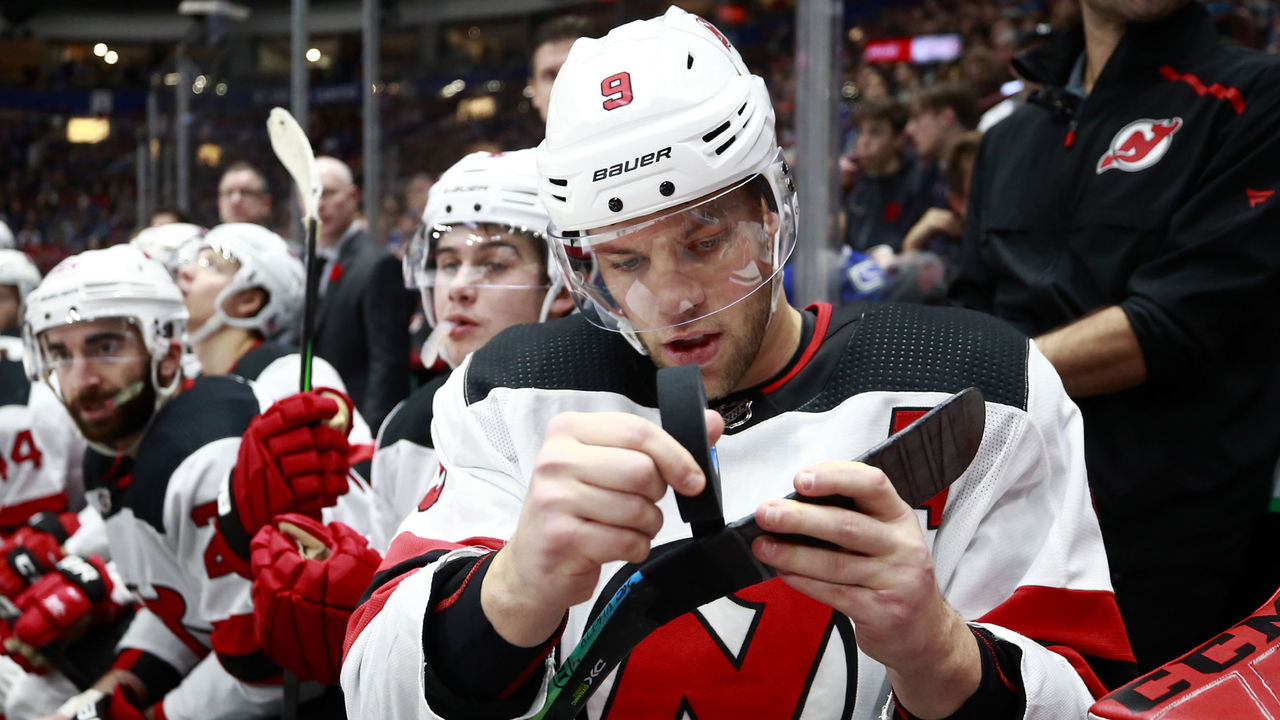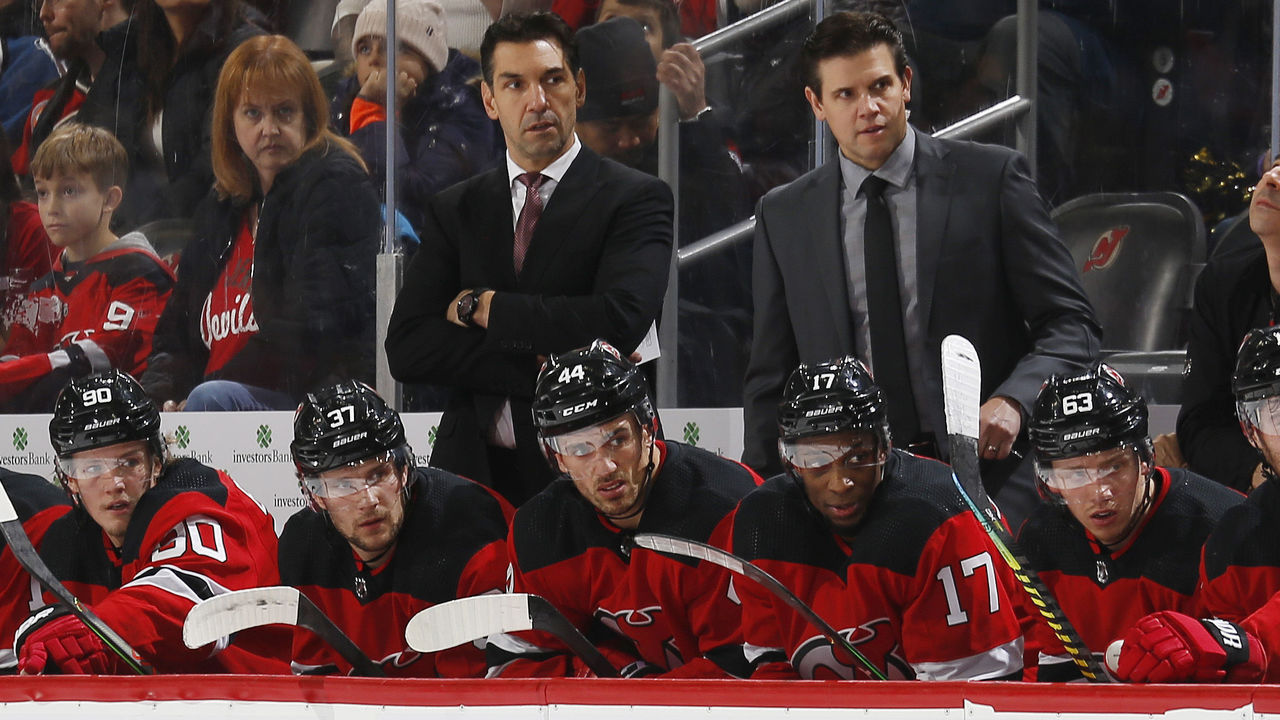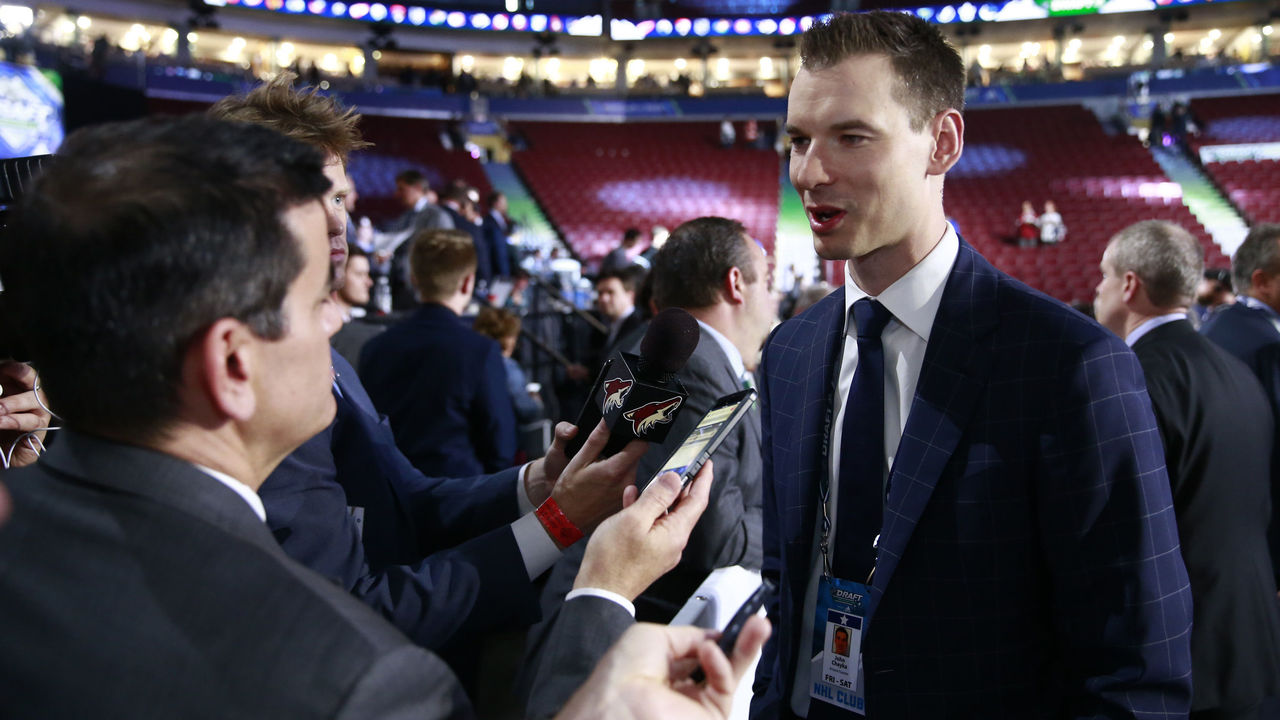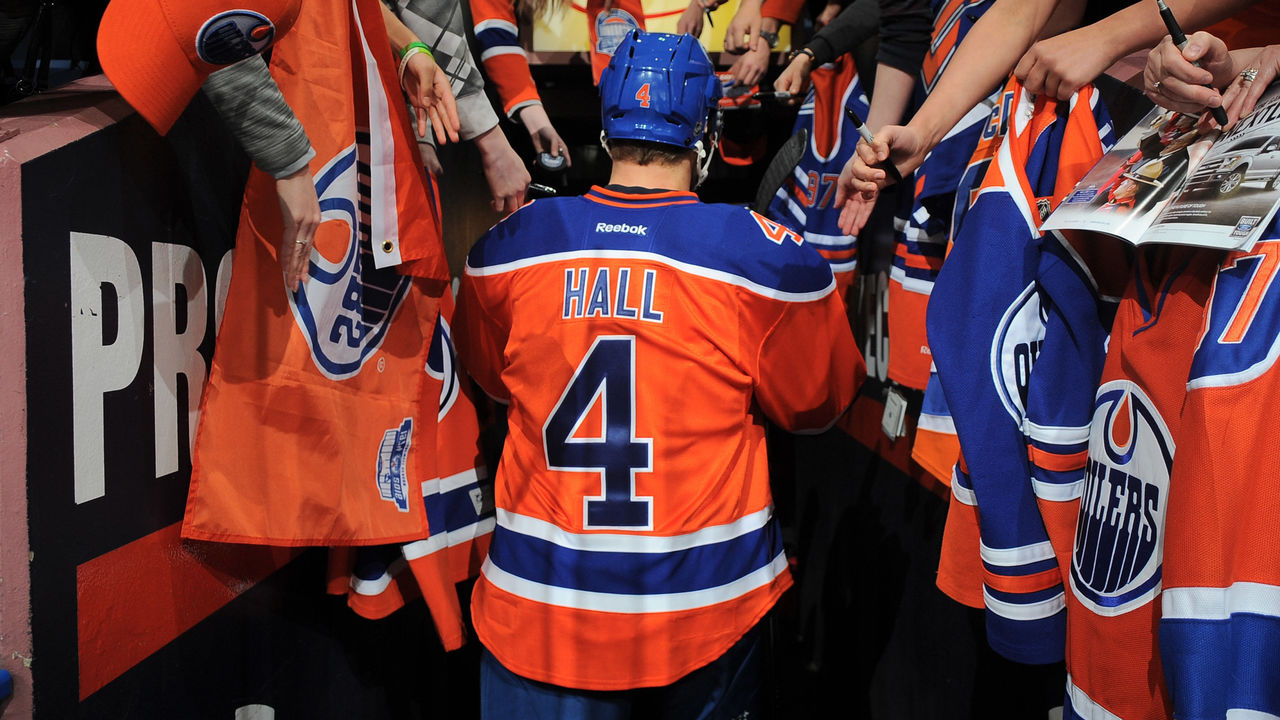Trade analysis: Hall, Coyotes needed each other
Taylor Hall says he remembers each of his playoff games in "great detail."
That's either a testament to the 28-year-old's memory retention or a reminder of how sad it is that a player of Hall's caliber has dressed for a grand total of five NHL postseason contests.
Either way, Hall feels he's finally in a position to reverse his fortunes by joining the Arizona Coyotes, who sat atop the Pacific Division and ranked 10th among 31 teams in points percentage prior to Monday's slate of games.
"That's what this is all about," Hall said during a conference call Monday following the blockbuster trade that sent him from the lowly New Jersey Devils to the 19-12-4 Coyotes. "It's not about what line I play on, or what power-play unit (I'm assigned to). I'm really just looking forward to winning games."

We'll get back to the fit with Hall and Arizona, but, first ...
What's the Devils' angle?
It's never a positive sign when the team parting ways with the only NHL player in the deal - a star, no less - receives nothing concrete in return. For that reason, Devils general manager Ray Shero gets a failing grade for his role in the Hall trade.
Shero shipped Hall and AHL forward Blake Speers to Glendale for a top-three-protected first-round pick in 2020, a conditional third-round pick in 2021, and three promising but unspectacular prospects in forwards Nick Merkley and Nate Schnarr, and defenseman Kevin Bahl.
The Devils, who are retaining $3 million (50%) of Hall's salary cap hit, clearly hope the Coyotes go on a deep playoff run and convince the winger, who's a pending unrestricted free agent on July 1, to stay long term. The 2021 pick becomes a second-round selection if the Coyotes win a playoff round or re-sign Hall. And it becomes a first-round selection if the Coyotes win a playoff round and re-sign Hall - a double whammy, of sorts.
"I've been open to anything, and I haven't closed the book on signing with any team prior to July 1," Hall said of his thought process in the leadup to his first crack at testing the UFA market.

So, if the best-case scenario for Shero and the Devils comes to fruition, it's fair to say this trade will look decent, in hindsight. The haul would be two first-rounders and three prospects for a star on an expiring contract and an AHLer.
Shero could then walk away from the disaster that is the 2019-20 season and feel he's at least made a little progress toward a better future. Right now, though, there's no way New Jersey can claim this year is going according to plan with Hall officially gone, Shero changing coaches earlier this month, and last offseason's splashy additions contributing less than expected.
Now, if one of the other scenarios play out, in which that 2021 pick remains a third-round selection or is upgraded to a second-rounder, this trade will be a tougher pill to swallow for Jersey.
Realistically, given Arizona's trajectory this season, the 2020 first-rounder is probably going to be a mid- or late-round pick. Then, you factor in the prospects, who, based on sources around the league, don't project to be NHL stars, and there's not much to get excited about.
One, two, or perhaps all three of Merkley, Schnarr, and Bahl may blossom into everyday NHLers - the latter, a 6-foot-7 blueliner with some solid upside, is considered the best of the bunch - but that's a long shot. In the end, the Devils didn't yield a single blue-chip prospect for the best rental in the league. That hurts.
How's the fit in Arizona?
As for Arizona and GM John Chayka, there's significantly less hedging required because the fit with Hall is, in a word, apt.

This is exactly the kind of trade that Coyotes fans have been clamoring for since Chayka was crowned GM in spring 2016. Yes, the 30-year-old has developed a reputation as one of the NHL's most active executives, but he hadn't landed one bonafide offensive spark plug prior to the Phil Kessel swap.
Hall injects a dynamism that was sorely lacking within Arizona's forward group. To get him at this rate, and in the middle of December rather than late February, promotes this to a two-thumbs-up victory for a club that believes in itself already.
"He's a game-changer. He's an electric player. He's one of my favorite players to watch, just in terms of entertainment value," Chayka said. "Then, when you really start to dig into some of the deeper analytics of how this guy impacts the game and impacts his teammates in so many different ways."
It helps that Hall is motivated to turn around a season in which his counting stats aren't matching his credentials as the Hart Trophy winner of two seasons ago. Though a career-low shooting rate of 5.5% suggests he's been the victim of poor puck luck, Hall's accumulated just six goals and 19 assists for 25 points in 30 games this year.
"I feel like the organization in Arizona does a lot of due diligence. They respect the analytics of the game, and for them to want to pursue a player like myself, it's definitely flattering," said Hall. "It's been a tough year, and it hasn't gone the way that I've wanted, but coming into a new situation and a team that has confidence that you can help them, it's a really nice thing."
Hall is a rare goal-scoring winger who tilts the ice for his teams. He's speedy, crafty, and consistently on the right side of the puck. Over his career, which includes six years in Edmonton and three-and-a-half in New Jersey, Hall's teams have owned 50.7% of the even-strength shot attempts when he's on the ice, versus 46.1% of the attempts when he's not. Both Hall's supreme abilities and the poor quality of his former squads have contributed to that huge gap.

The Coyotes, meanwhile, aren't serial winners themselves. Only the Buffalo Sabres have a longer playoff drought than Arizona's seven-season skid. The narrative around the organization is changing, though, with new ownership giving the green light to spending to the cap, Chayka improving the roster bit by bit and now enormously, and head coach Rick Tocchet providing ultimate credibility.
"We know Taylor wants to win. That's kind of the main criteria for him to re-sign," Chayka said. "We feel like we have a chance to win for a long time here, so we feel like our opportunity is as good as anybody."
The Coyotes are set between the pipes, with Darcy Kuemper and Antti Raanta providing one of the best one-two punches in the NHL. Their group of defensemen, led by Oliver Ekman-Larsson and Jakob Chychrun, is deep. Up front, they've traditionally failed to generate much offense but have some guns, including Kessel, Nick Schmaltz, and Clayton Keller.
It'll be fascinating to watch how Hall's presence alters Tocchet's forward combinations and how opposing teams change their defensive tactics. All of a sudden, a creative guy like Keller is less of a priority for shutdown units and can move about the ice more freely.
Regardless of what transpires over the next few months, as the Coyotes attempt to clinch that elusive playoff spot, Chayka made what he calls a "potentially once-in-a-lifetime" move. He believes the Coyotes' timeline aligns well with Hall's and has been asking a simple yet profound question both internally and externally: "Why not us, at this stage?"
John Matisz is theScore's national hockey writer.